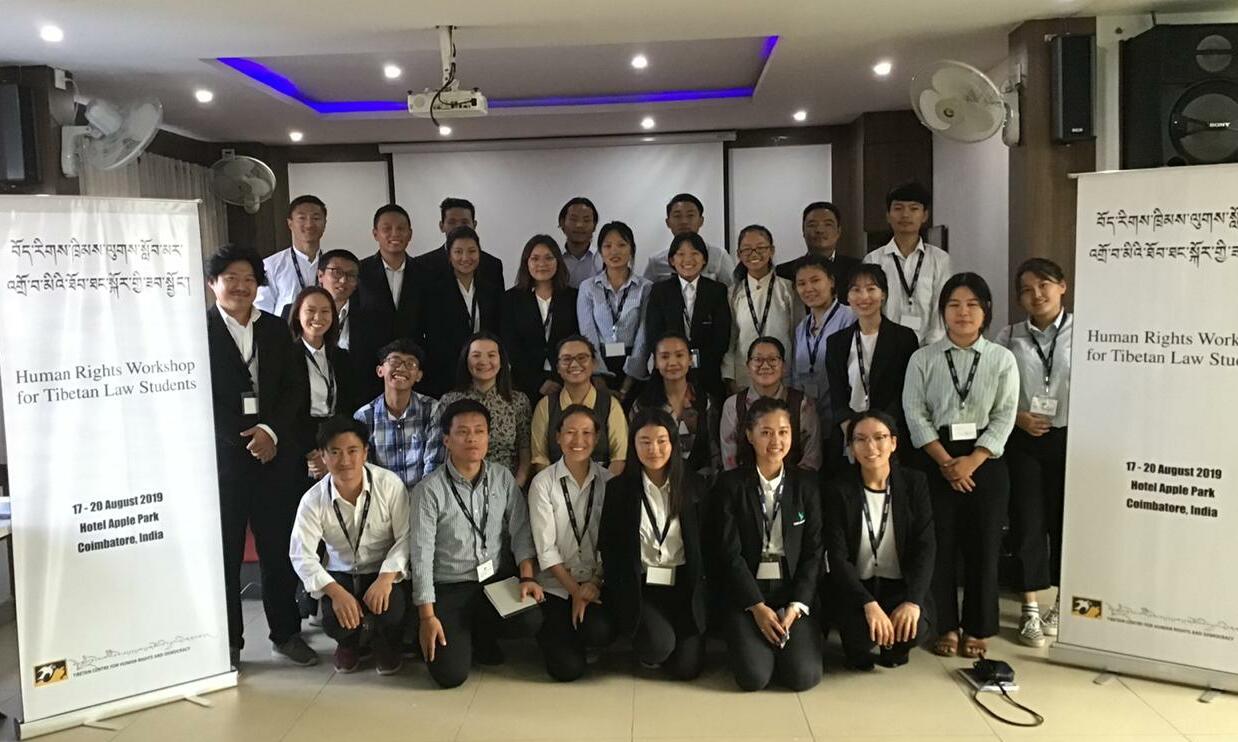Tibetan law students attend workshop on human rights monitoring and advocacy
 A group of 26 Tibetans studying law at various universities in India took part in a workshop on human rights monitoring and advocacy from 17 to 20 August at Hotel Apple Park in Coimbatore, South India.
A group of 26 Tibetans studying law at various universities in India took part in a workshop on human rights monitoring and advocacy from 17 to 20 August at Hotel Apple Park in Coimbatore, South India.
Participants learned about major international human rights instruments, relevant enforcement mechanisms and human rights situation in Tibet. They also learned about the challenges faced by human rights defenders and their family members particularly in the context of legal representation and fair trial rights. Other topics covered during the workshop included the state of rule of law and civil society in the People’s Republic of China.
Organised by TCHRD, the workshop inspired many participants to pursue a future career in human rights litigation and research covering areas from civil and political rights to economic rights. “It sure sounds very challenging but I believe choosing a career in human rights will help me serve our movement in a more efficient manner,” said a third year student from the School of Legal Studies at CMR University in Bangalore on the last day of the workshop. A student from JSS Law College in Mysore recounted how she had always wanted to work in the human rights field and the workshop helped cement her conviction. “After learning about the brutal human rights situation in Tibet, my resolve to become a human rights lawyer has become stronger.”
Participants also learned from the experiences of celebrated human rights defender Mr Henri Tiphagne who has worked for over four decades in defending ‘dissent, democracy and human rights’ in India as the founder and executive director of Madurai-based human rights organisation People’s Watch. In his online chat with the participants, Mr Tiphange emphasised the importance of human rights monitoring and individual credibility, adding that one should avoid publicity in favour of credibility.
Ms Akila RS, a visiting faculty at National Law University Delhi, spoke on the third day of the workshop drawing attention to human rights as a viable career option. Ms Akila shared her experiences as a student and as a professional before advising the participants to be proactive and discerning in identifying their interests and pursuing a particular career choice. Towards the end of the session, a participant noted that what he learned from Ms Akila’s 45-minute talk equalled a month of classes at his law school.
An interactive session with Ms Tenzin Choedon, an advocate working with Human Rights Law Network, was held on the second day of the workshop. With a keen interest in criminal justice, Ms Choedon said her interest primarily lies in bridging the gap between litigation and advocacy. She provided valuable counsel to the participants on internship opportunities and underlined the importance of discipline, professionalism and commitment.
